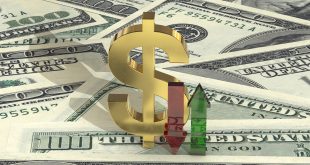The S&P 500 is flat in subdued trade on the final session of 2021, having slipped back under 4800 on Thursday. The index is on course to post an annual return of more than 27%.
All the major US indices were powered higher in 2021 by massive fiscal and monetary stimulus plus mass vaccine rollouts.
After sliding back under the 4780 level after printing record intra-day highs earlier in the session near 4810 on Thursday, the S&P 500 is trading in passive fashion in the 4770s on Friday.
Trading conditions have been especially light, with European markets either shut or closing early and a great number of US market participants also on holiday for New Year’s celebrations.
Despite trading roughly 0.75% lower versus Thursday’s record highs, the S&P 500 remains on course to close out the week about 1.0% higher, after power above resistance in the 4740 area (the November and earlier December highs) on Monday.
Equity market sentiment has been given a substantial boost in recent sessions (the S&P 500 is more than 5.0% higher versus last week’s lows) as more and more data confirmed the fast-spreading Omicron variant to be substantially milder than prior Covid-19 strains.
The US FDA last week approved two effective at-home treatments (oral pills) for Covid-19. Evidence in the form of December business sentiment survey data, card spending data and the latest weekly jobless claims report all suggest the US economy has managed to hold up well in the face of surging Omicron infection rates.
Omicron poses downside risks to economic activity in Q1 2022, with analysts highlighting store closures across the US and rampant flight cancellations, most suspect this will be economic activity delayed rather than lost. Fed views the US economy as much better adapted to cope with future Covid-19 infection waves.
Looking ahead to 2022, focus is likely to shift away from the pandemic and back onto earnings and the Fed. The Q3 2021 earnings season in October helped power US equities at the time to fresh record levels and analyst expectations are high that Q4 performance should be strong as well.
This may provide US equities with tailwinds, though investors will also have to deal with the possibility that the Fed might start hiking interest rates as soon as March, by which time it will have completely unwound its QE programme.
At the moment, investors are confident that in the long-run, Fed policy will remain highly accommodative by historical standards (hence why 10 and 30-year yields remain so low) and, as long as this remains the case, equities should be able to weather any near-term Fed hawkishness.
It is suggested that even in wake of its best annual performance since 1999, during which time the S&P 500 has rallied more than 27% on the year, the outlook for 2022 remains upbeat. For reference, the Nasdaq 100 index is also on course to clock a roughly 27% annual gain, while the Dow is up just shy of 19%.
All the major US indices were powered higher in 2021 by massive fiscal and monetary stimulus, as well as easing pandemic concerns amid mass vaccine rollouts.

 Noor Trends News, Technical Analysis, Educational Tools and Recommendations
Noor Trends News, Technical Analysis, Educational Tools and Recommendations




